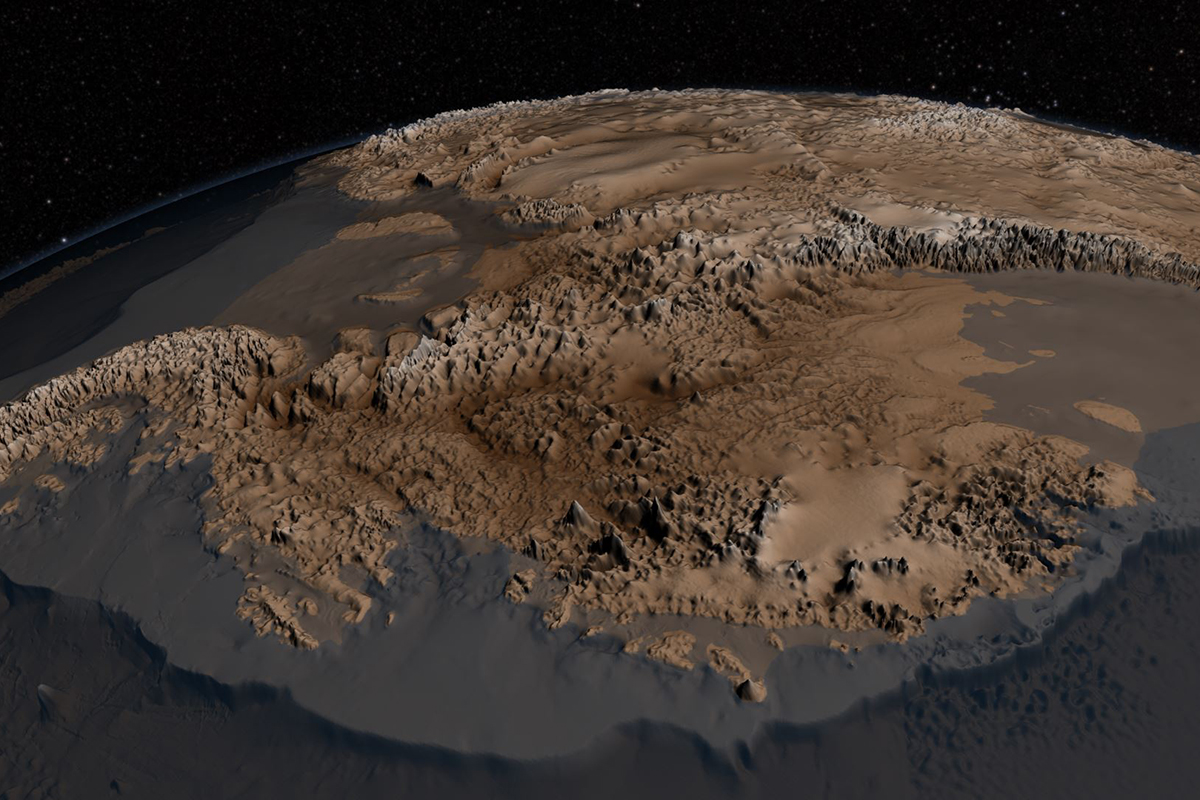Here we go again, and again, and again!
There are almost 100 new volcanoes hiding under Antarctic ice

https://www.newscientist.com/article/2143924-there-are-almost-100-new-vo...
Here we go again, and again, and again!
There are almost 100 new volcanoes hiding under Antarctic ice

https://www.newscientist.com/article/2143924-there-are-almost-100-new-vo...
WHEN THE CLIMATE GOES OVER THE EDGE
29-Sep-2017
16:00 - 16:40
Earth Theatre
Earth

We’re bad at predicting which activities will have the biggest impact on the climate. Can we get better before it’s too late?
Tipping points occur when a small change triggers a large response from a system. Even a system as complex as the Earth’s climate has several tipping points that can be triggered by human activities.
Some climate tipping points in the polar regions may already have been crossed and, as global temperatures increase, the likelihood of passing others is constantly growing. These changes are hard to reverse and lead to large impacts on societies and ecosystems.
Our capacity to forecast such abrupt, non-linear changes has historically been poor. However, Tim Lenton will show that approaching tipping points carry early warning signals, which could be used to design prevention systems.
https://live.newscientist.com/talks/when-the-climate-goes-over-the-edge/...|NSNSL|2017-UK-nslive17|editoriallink&utm_medium=ILC&utm_source=NSNSL&utm_campaign=nslive17&utm_content=editoriallink
WHEN THE CLIMATE GOES OVER THE EDGE
29-Sep-2017
16:00 - 16:40
Earth Theatre
Earth
We’re bad at predicting which activities will have the biggest impact on the climate. Can we get better before it’s too late?
Tipping points occur when a small change triggers a large response from a system. Even a system as complex as the Earth’s climate has several tipping points that can be triggered by human activities.
Some climate tipping points in the polar regions may already have been crossed and, as global temperatures increase, the likelihood of passing others is constantly growing. These changes are hard to reverse and lead to large impacts on societies and ecosystems.
Our capacity to forecast such abrupt, non-linear changes has historically been poor. However, Tim Lenton will show that approaching tipping points carry early warning signals, which could be used to design prevention systems.
https://live.newscientist.com/talks/when-the-climate-goes-over-the-edge/...|NSNSL|2017-UK-nslive17|editoriallink&utm_medium=ILC&utm_source=NSNSL&utm_campaign=nslive17&utm_content=editoriallink
The question itself is the problem.
We do not need to be good at predicting which activities will have the biggest impact. That atempt to calculate danger on a knife edge while ignoring as much as possible and waiting for specific evidence is the real problem not the limits of science.
If humans backed off what is dangerous rather than first calculating the exact degree of danger and the specific expected impact, we would be safer.
It is refraining from actions unknown to be safe that is the key rather than identifying the greatest risk.
If we could accurately rank the greatest impacts on the environment into a top ten list and we avoided the top 5 we could still be destroyed by the next five. It is the cumulative effect of many small actions, with smaller impacts, rather than just the single greatest actions that risk us.
And of course human inequality itself is a grave environmental risk. I have explained that here in the past and will not take the time to do so today. Social and environmental sustainability are closely related and interdependent.